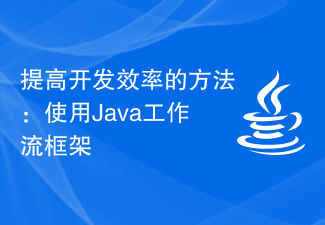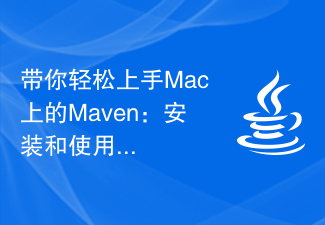
How to use the Hyperf framework for distributed service calls
Introduction:
With the development of business, the size and complexity of applications are also growing rapidly. In this case, in order to improve the scalability and scalability of the business, distributed systems are becoming more and more important. Service invocation in distributed systems has also become complex, requiring a reliable framework to simplify development and management.
Hyperf is a high-performance framework based on Swoole extension, focusing on long links and coroutines, providing a large number of components and functions. In this article, we will introduce how to use the Hyperf framework to make distributed service calls.
1. Preparation
- Install the Hyperf framework
First, we need to install the Hyperf framework locally. Hyperf can be quickly installed through the following command:
composer create-project hyperf/hyperf-skeleton
- Configuration file
After the installation is complete, some basic configuration of the Hyperf framework is required. You can edit the .env file to configure database connection, Redis and other related information.
2. Create a service provider
- Create a service provider class
Create a service in the app/Provider directory Provider class, named RemoteServiceProvider. This class will define a remote service method.
<?php
declare(strict_types=1);
namespace AppProvider;
use HyperfRpcClientAbstractServiceClient;
class RemoteServiceProvider extends AbstractServiceClient
{
protected $serviceName = 'ServiceName';
protected $protocol = 'jsonrpc-http';
public function remoteMethod(array $params)
{
return $this->__request(__FUNCTION__, compact('params'));
}
}In the above code, RemoteServiceProvider inherits AbstractServiceClient and defines a remote method named remoteMethod.
- Configuration service provider
Edit the config/dependencies.php file and add the following code:
use AppProviderRemoteServiceProvider;
return [
'dependencies' => [
// ...
RemoteServiceProvider::class => RemoteServiceProvider::class,
],
];3. Create Service consumer
- Create a controller class
Create a controller class in the app/Controller directory and name it TestController. Remote services will be called in this class.
<?php
declare(strict_types=1);
namespace AppController;
use AppProviderRemoteServiceProvider;
use HyperfHttpServerAnnotationController;
use HyperfHttpServerAnnotationPostMapping;
/**
* @Controller()
*/
class TestController
{
/**
* @PostMapping(path="/test")
*/
public function test(RemoteServiceProvider $service)
{
$params = ['key' => 'value'];
return $service->remoteMethod($params);
}
}In the above code, the test method in the TestController class injects the RemoteServiceProvider and calls its remoteMethod method.
- Configure routing
Edit the config/routes.php file and add the following code:
use AppControllerTestController; $router->addRoute(['POST'], '/test', [TestController::class, 'test']);
4. Start the server and client
- Start the server
Use the following command to start the Hyperf server:
php bin/hyperf.php start
The server will start listening to the specified port and wait for the client ask.
- Start the client
Use the following command to start the Hyperf client:
php bin/hyperf.php start
The client will automatically initiate a request to the server and obtain the response result .
Conclusion:
Through the above steps, we can use the Hyperf framework to make distributed service calls. First, we create a service provider class and define a remote method in it. We then created a controller class, injected the service provider into it and called its methods. Finally, we started the server and client to complete the distributed service call.
The Hyperf framework provides powerful functions and components, making distributed system development simpler and more efficient. By using the Hyperf framework, we can quickly build distributed applications and easily implement microservice architecture.
I hope this article will help you understand how to use the Hyperf framework to make distributed service calls. I wish you success in the development of distributed systems!
The above is the detailed content of How to use the Hyperf framework for distributed service calls. For more information, please follow other related articles on the PHP Chinese website!
 如何使用Hyperf框架进行文件存储Oct 25, 2023 pm 12:34 PM
如何使用Hyperf框架进行文件存储Oct 25, 2023 pm 12:34 PM如何使用Hyperf框架进行文件存储,需要具体代码示例Hyperf是一个基于Swoole扩展开发的高性能PHP框架,具备协程、依赖注入、AOP、中间件、事件管理等强大的功能,适用于构建高性能、灵活可扩展的Web应用和微服务。在实际项目中,我们经常需要进行文件的存储和管理,Hyperf框架提供了一些方便的组件和工具,帮助我们简化文件存储的操作。本文将介绍如何使
 PHP Hyperf微服务开发指南:从入门到精通Sep 12, 2023 am 10:31 AM
PHP Hyperf微服务开发指南:从入门到精通Sep 12, 2023 am 10:31 AM从2004年诞生至今,PHP一直是全球最流行的开发语言之一。随着互联网的快速发展和技术的不断创新,PHP的发展也日新月异。其中,微服务架构逐渐成为当今软件开发的热门趋势。本文将带你进入PHPHyperf微服务开发的世界,从入门到精通。一、什么是微服务架构?微服务架构是一种基于一组小型、独立部署的服务组件构建的系统架构。相比于传统的单体应用架构,微服务架构通
 Golang编程中宏的使用指南和技巧Mar 05, 2024 pm 03:18 PM
Golang编程中宏的使用指南和技巧Mar 05, 2024 pm 03:18 PMGolang编程中宏的使用指南和技巧在Golang编程中,宏(Macro)是一种非常强大的工具,可以帮助我们简化代码、提高程序的可读性和可维护性。尽管Golang(Go语言)本身并不直接支持宏,但是通过使用代码生成工具或者自定义函数等方式,我们可以实现类似宏的功能。本文将详细介绍Golang编程中宏的使用指南和一些技巧,并提供具体的代码示例。什么是宏宏是一种
 如何使用Hyperf框架进行PDF生成Oct 25, 2023 pm 12:40 PM
如何使用Hyperf框架进行PDF生成Oct 25, 2023 pm 12:40 PM如何使用Hyperf框架进行PDF生成,需要具体代码示例随着数字化时代的到来,PDF(PortableDocumentFormat)格式的文件在各个领域中扮演着重要的角色。PDF格式的文件具有高度的可移植性和可视化,使得它成为许多场景中的首选。在Web开发中,生成PDF文件是一项常见的需求。本文将介绍如何使用Hyperf框架来实现PDF文件的生成,并提供
 构建可扩展的微服务应用:探索PHP Hyperf的技术特点Sep 11, 2023 pm 07:01 PM
构建可扩展的微服务应用:探索PHP Hyperf的技术特点Sep 11, 2023 pm 07:01 PM近年来,微服务架构已成为构建现代应用程序的主流方式。它通过将一个大型应用拆分成小而自治的服务,从而提高了应用的可扩展性、可维护性和可部署性。在微服务架构中,每个服务都是独立开发、部署和运行的,它们之间通过轻量级的通信机制进行交互。在构建微服务应用时,选择一个适合的开发框架非常关键。PHPHyperf是一个基于Swoole高性能协程网络框架的微服务框架
 学习使用五种Kafka可视化工具的快速入门Jan 31, 2024 pm 04:32 PM
学习使用五种Kafka可视化工具的快速入门Jan 31, 2024 pm 04:32 PM快速入门:五种Kafka可视化工具的使用指南1.Kafka监控工具:简介ApacheKafka是一种分布式发布-订阅消息系统,它可以处理大量的数据,并提供高吞吐量和低延迟。由于Kafka的复杂性,需要使用可视化工具来帮助监控和管理Kafka集群。2.Kafka可视化工具:五大选择KafkaManager:KafkaManager是一个开源的Web界
 提高开发效率的方法:使用Java工作流框架Dec 27, 2023 am 10:32 AM
提高开发效率的方法:使用Java工作流框架Dec 27, 2023 am 10:32 AM如何使用Java工作流框架提高开发效率引言:在软件开发过程中,工作流(Workflow)指的是一系列相关的任务、活动或者步骤的集合。在实际应用中,工作流可以用于协调和管理一些具有复杂业务逻辑的系统。为了提高开发效率,开发人员可以使用Java工作流框架来简化工作流的设计和实现过程。本文将介绍一些常用的Java工作流框架,并通过具体的代码示例展示如何使用这些框架
 带你轻松上手Mac上的Maven:安装和使用指南Jan 28, 2024 am 08:47 AM
带你轻松上手Mac上的Maven:安装和使用指南Jan 28, 2024 am 08:47 AMMac用户必备:Maven的安装教程与使用指南引言:Maven是一个功能强大的项目管理工具,它可以管理项目的构建、依赖关系、测试和发布等方面。对于Mac用户来说,安装和使用Maven是非常重要的。本文将为Mac用户详细介绍Maven的安装教程和使用指南,并提供具体的代码示例,帮助读者更好地理解和使用Maven。一、安装Maven步骤1:下载Maven首先,打


Hot AI Tools

Undresser.AI Undress
AI-powered app for creating realistic nude photos

AI Clothes Remover
Online AI tool for removing clothes from photos.

Undress AI Tool
Undress images for free

Clothoff.io
AI clothes remover

AI Hentai Generator
Generate AI Hentai for free.

Hot Article

Hot Tools

PhpStorm Mac version
The latest (2018.2.1) professional PHP integrated development tool

Dreamweaver Mac version
Visual web development tools

SecLists
SecLists is the ultimate security tester's companion. It is a collection of various types of lists that are frequently used during security assessments, all in one place. SecLists helps make security testing more efficient and productive by conveniently providing all the lists a security tester might need. List types include usernames, passwords, URLs, fuzzing payloads, sensitive data patterns, web shells, and more. The tester can simply pull this repository onto a new test machine and he will have access to every type of list he needs.

DVWA
Damn Vulnerable Web App (DVWA) is a PHP/MySQL web application that is very vulnerable. Its main goals are to be an aid for security professionals to test their skills and tools in a legal environment, to help web developers better understand the process of securing web applications, and to help teachers/students teach/learn in a classroom environment Web application security. The goal of DVWA is to practice some of the most common web vulnerabilities through a simple and straightforward interface, with varying degrees of difficulty. Please note that this software

MinGW - Minimalist GNU for Windows
This project is in the process of being migrated to osdn.net/projects/mingw, you can continue to follow us there. MinGW: A native Windows port of the GNU Compiler Collection (GCC), freely distributable import libraries and header files for building native Windows applications; includes extensions to the MSVC runtime to support C99 functionality. All MinGW software can run on 64-bit Windows platforms.






